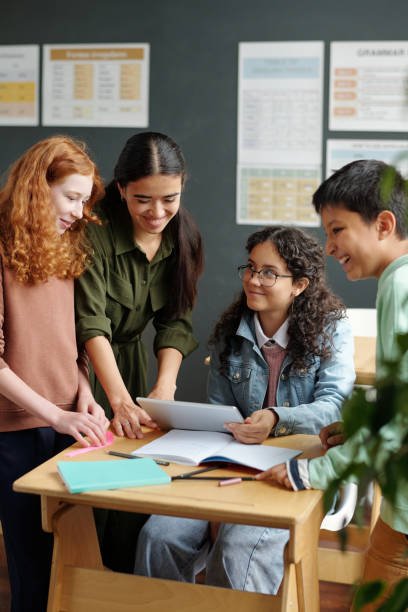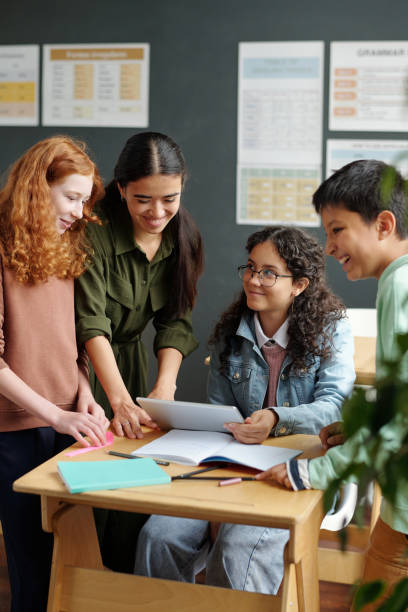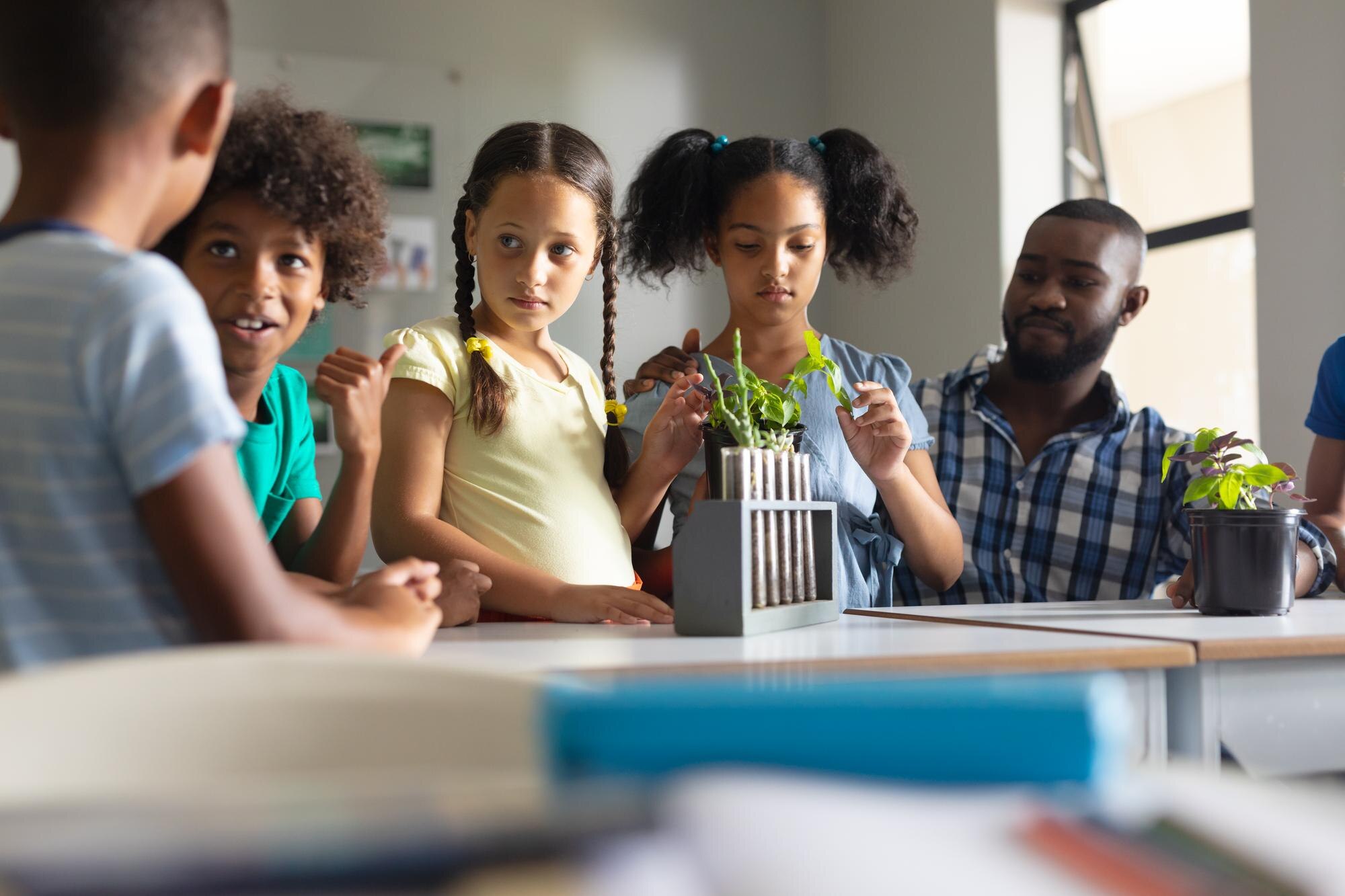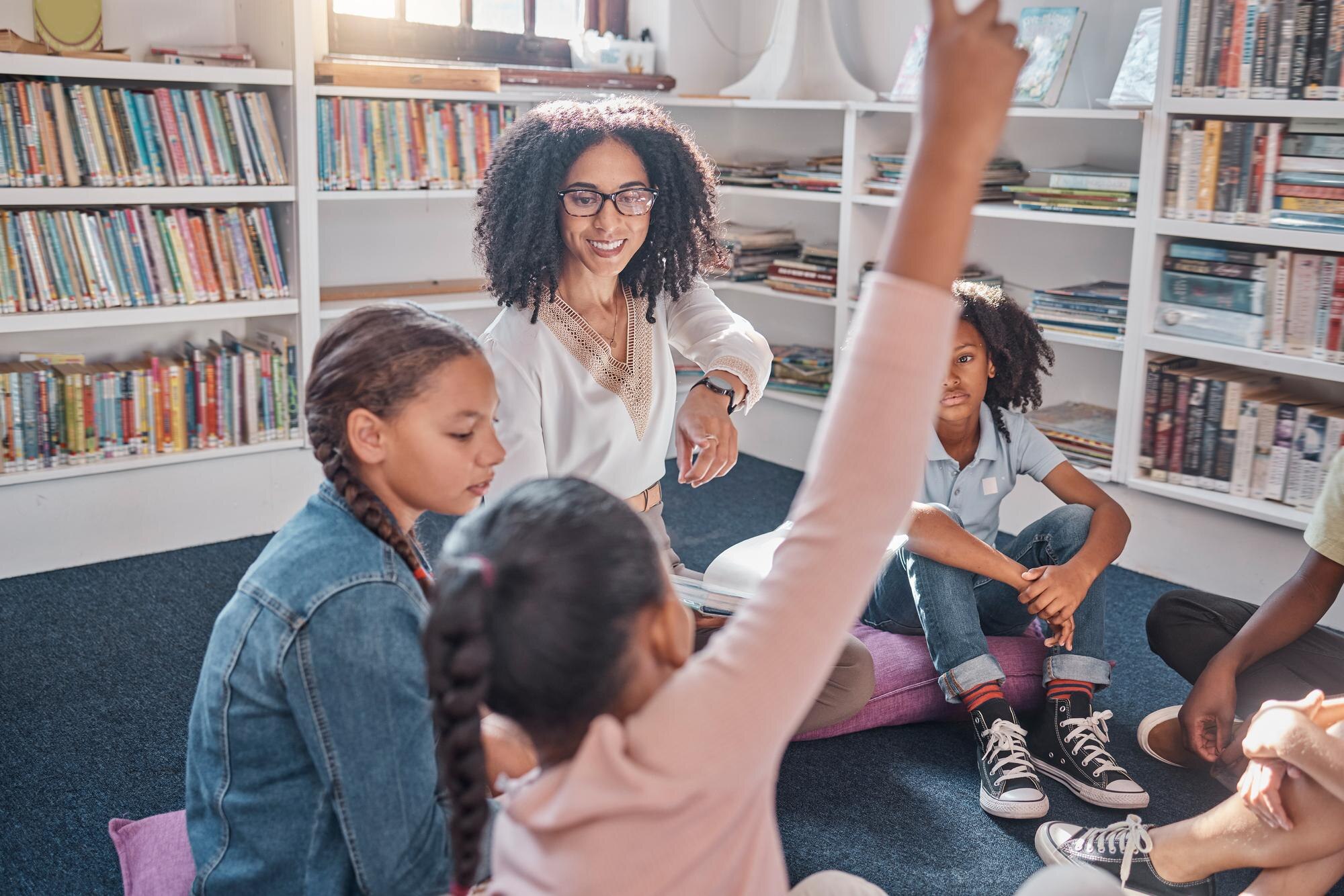
Happy intercultural learners of language courses and their teacher discussing online video or watching slide show on tablet screen
Empowering Gifted Students: Top Strategies for Educators to Foster Resilience and Confidence
Gifted students face unique emotional challenges. They often struggle with anxiety and perfectionism. As an educator, you play a crucial role in helping them build resilience and confidence, guiding them through their emotional maze. This blog post offers practical educational strategies designed to support the emotional and mental well-being of gifted students. Discover how to empower these bright minds to thrive both in the classroom and beyond. Join our community of educators dedicated to nurturing gifted youth. Subscribe for more insights and strategies.
Understanding Gifted Students’ Emotional Needs

Gifted students often face emotional challenges that can impact their academic and personal growth. Recognizing these needs is crucial in providing the right support. Educators play a significant role in addressing anxiety and perfectionism, two common issues among gifted learners.
Recognizing Anxiety and Perfectionism
Anxiety is a prevalent issue among gifted students. They may experience intense worries about their performance and future. This can stem from their heightened sensitivity and awareness. Perfectionism is closely related, as gifted students often set unrealistically high standards for themselves. This can lead to fear of failure and avoidance of challenging tasks.
Educators need to recognize these signs early. By understanding the root causes, they can offer targeted support. Open dialogues in the classroom about stress and pressure can help students feel less isolated.
Implementing techniques like mindfulness exercises can be beneficial. Educators can also provide alternative assessment methods that alleviate the pressure of traditional grading. For more strategies, check this resource.
The Role of Educators in Emotional Support
Educators are key players in providing emotional support for gifted students. By creating a nurturing environment, they can foster a sense of safety and belonging. This involves being approachable and understanding the unique struggles of gifted learners.
Active listening is vital. Educators should offer a space where students can express their concerns. This involves validating their feelings and avoiding dismissive language.
Implementing a mentorship system can also be beneficial. Pairing students with mentors who have similar experiences can provide valuable insights and guidance. Resources like those found here can offer further guidance.
Lastly, collaboration with parents is essential. Educators should communicate regularly with families to ensure a consistent support system at home and school.
Strategies for Confidence Building

Building confidence in gifted students is essential for their overall development. By creating opportunities for success and learning from mistakes, educators can nurture a positive self-image.
Creating a Safe Learning Environment
A safe learning environment encourages gifted students to engage without fear of judgment. This involves setting clear expectations and celebrating diverse talents.
Flexibility in teaching methods can accommodate different learning styles. Allowing students to choose projects based on their interests can spark enthusiasm and confidence.
Regular feedback is crucial. Constructive criticism should focus on growth rather than shortcomings. Educators should highlight strengths before discussing areas for improvement. For more ideas, explore this guide.
Additionally, peer collaboration can boost confidence. Working with others helps students recognize their own contributions and learn from their peers. Classroom activities should foster teamwork and mutual respect.
Encouraging Positive Risk-Taking
Gifted students need to learn that taking risks can lead to growth. Encouraging positive risk-taking involves creating a culture that values experimentation and learning from mistakes.
Start small. Encourage students to try new activities outside their comfort zone.
Celebrate achievements, no matter the size. Acknowledge the effort and bravery in trying something new.
Promote reflection. After taking a risk, guide students to reflect on their experiences. What worked? What didn’t? What can they learn from this?
For more strategies on fostering a risk-taking mindset, visit this page.
Fostering Resilience in Gifted Education

Resilience is critical for gifted students to navigate challenges and setbacks. Educators can teach coping mechanisms and build a supportive community to foster resilience.
Teaching Coping Mechanisms
Gifted students benefit from learning effective coping mechanisms. These strategies help them manage stress and overcome obstacles with resilience.
Introduce stress management techniques such as deep breathing, meditation, or journaling. These activities can help students center themselves during overwhelming times.
Educators can model problem-solving skills in class. Encouraging students to view challenges as puzzles to be solved can shift their perspective from fear to curiosity.
Incorporate role-playing activities to simulate real-life scenarios. This can prepare students for potential stressors and equip them with strategies to handle them. For more methods, refer to this article.
Building a Supportive Community
Creating a supportive community is essential for fostering resilience. Gifted students thrive in environments where they feel understood and valued.
Develop mentorship programs connecting students with peers or adults who have faced similar challenges. This can provide a sense of belonging and reduce feelings of isolation.
Encourage family involvement. Collaboration between educators and parents strengthens the support network. Regular communication ensures everyone is aligned in supporting the student’s needs.
Classroom activities that promote teamwork and empathy can build a strong community. By working together, students can learn to appreciate each other’s strengths and support one another through challenges.
Explore more about building supportive communities in gifted education here.

A certified Heal Your Life® Coach with 20+ years in education and emotional development. Supports gifted teens in navigating anxiety, perfectionism, and identity challenges, while equipping parents with practical tools for lasting transformation. Sessions blend emotional healing, mindset mastery, and strategic empowerment.



